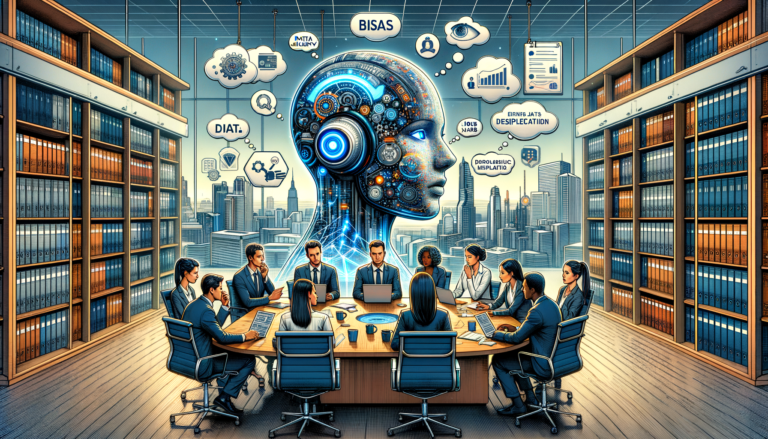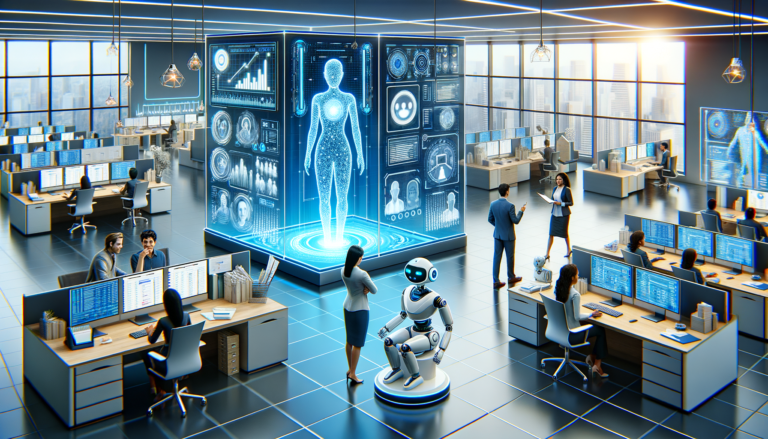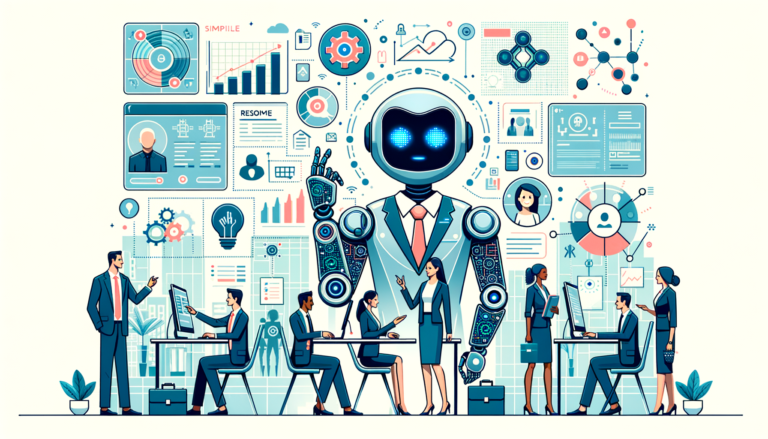Imagine a world where hiring the perfect candidate is as easy as pressing a button! Well, we’re not quite there yet, but AI is certainly shaking things up in the recruitment world. Did you know that 67% of hiring managers believe AI has made their jobs easier? (Source: LinkedIn) In this article, we’ll dive into the fascinating world of AI vs. traditional recruitment methods, exploring how technology is transforming the way we find and hire talent. Buckle up, because the future of recruitment is here, and it’s smarter than ever!
The Evolution of Recruitment: From Paper Resumes to Algorithms
Can you believe how much recruitment has changed over the years? It’s like we’ve gone from the Stone Age to the Space Age in just a few decades!
Remember the days when job applications meant stacks of paper resumes and endless filing cabinets? Hiring managers would spend hours sifting through applications, trying to find the perfect candidate. It was a time-consuming process, to say the least.
Then came the game-changer: applicant tracking systems (ATS). Suddenly, we could digitize resumes and search for keywords. It was like having a superpower! But even that was just the beginning.
Now, we’re in the age of AI recruitment. It’s mind-blowing how algorithms can scan thousands of applications in seconds, identifying top candidates faster than we can say “You’re hired!”
Understanding AI-Powered Recruitment
So, what exactly is AI recruitment? Think of it as your super-smart assistant that never sleeps. It uses machine learning and natural language processing to understand job descriptions, analyze resumes, and even conduct initial interviews.
For example, chatbots can engage with candidates 24/7, answering their questions and scheduling interviews. AI can also analyze video interviews, assessing candidates’ facial expressions and word choices. It’s like having a recruitment psychologist on steroids!
Traditional Recruitment: Tried and Tested Methods
Now, don’t get me wrong – traditional recruitment methods still have their place. There’s something to be said for the human touch in hiring. Face-to-face interviews, for instance, allow recruiters to gauge a candidate’s personality and cultural fit in ways that AI might miss.
Plus, experienced recruiters often have that “gut feeling” about a candidate that can be spot-on. It’s not all roses, though. Traditional methods can be slow, prone to bias, and overwhelmed by large volumes of applications.
AI vs. Traditional Recruitment: A Head-to-Head Comparison
Let’s break it down, shall we? When it comes to speed and cost-effectiveness, AI is the clear winner. It can process applications at lightning speed and doesn’t need coffee breaks!
AI also has an edge in reducing bias. Unlike humans, algorithms don’t have unconscious prejudices (well, unless we program them in accidentally – but that’s another story).
On the flip side, traditional methods often provide a better candidate experience. There’s something reassuring about talking to a real person during the job search process.
As for accuracy in matching candidates to jobs, it’s a bit of a toss-up. AI can crunch numbers and spot patterns humans might miss, but experienced recruiters can read between the lines of a resume in ways AI still struggles with.
The Pros and Cons of AI in Recruitment
AI in recruitment is like a superhero with both amazing powers and potential weaknesses. On the plus side, it’s incredibly fast, can handle massive amounts of data, and makes decisions based on hard facts rather than hunches.
However, AI isn’t perfect. There’s always the risk of bias creeping into algorithms, especially if they’re trained on historically biased data. And let’s face it, AI can’t replicate the nuanced understanding of human interaction that a skilled recruiter brings to the table.
We also need to consider the ethical implications. How much data should we collect on candidates? How do we ensure AI decisions are fair and transparent? These are questions we’re still grappling with.
Integrating AI with Traditional Recruitment: The Hybrid Approach
Here’s where things get exciting – the best of both worlds! Many companies are now adopting a hybrid approach, using AI to handle the heavy lifting of initial screening and data analysis, while leaving the final decisions to human recruiters.
For instance, AI might shortlist candidates based on their skills and experience, but human recruiters conduct the interviews and make the final call. It’s like having a super-efficient assistant who preps everything for you, but you still get to be the boss.
Some companies have seen great success with this approach. They’re able to process more applications, reduce time-to-hire, and still ensure that each candidate gets a personal touch.
The Future of Recruitment: Trends and Predictions
So, what’s next in the world of recruitment? Hold onto your hats, because it’s going to be a wild ride!
We’re already seeing the emergence of virtual reality interviews and gamified assessments. Imagine interviewing for a job while exploring a virtual office – pretty cool, right?
The role of recruiters is evolving too. Instead of spending time on administrative tasks, they’re becoming more like talent advisors, focusing on strategy and candidate experience.
To keep up, we’ll all need to become more tech-savvy and data-literate. But don’t worry – the human touch will always be valuable. After all, at the end of the day, we’re hiring people, not robots!
Conclusion
Wow, what a journey through the world of recruitment! We’ve seen how AI is revolutionizing the hiring process, but also why traditional methods still have their place. The future of recruitment isn’t about choosing sides – it’s about finding the perfect balance between human intuition and artificial intelligence. As we move forward, it’s crucial for recruiters and HR professionals to stay adaptable and embrace new technologies while maintaining that all-important human touch. Are you ready to take your recruitment game to the next level? The future is calling, and it’s time to answer!








2 Comments